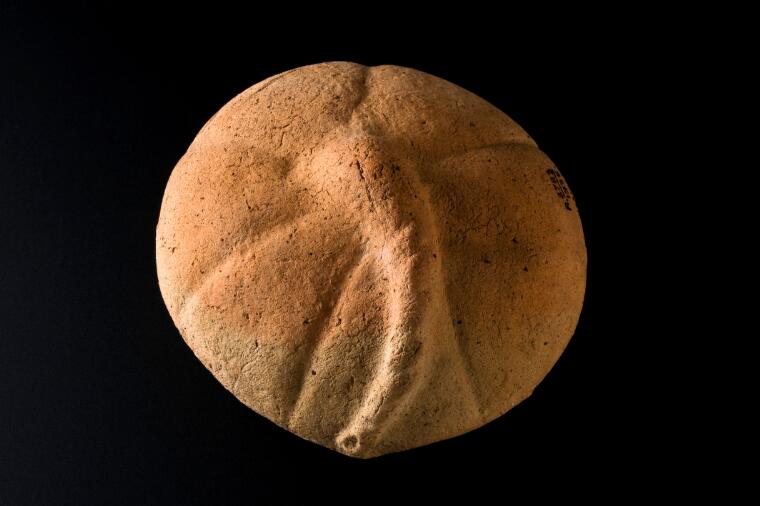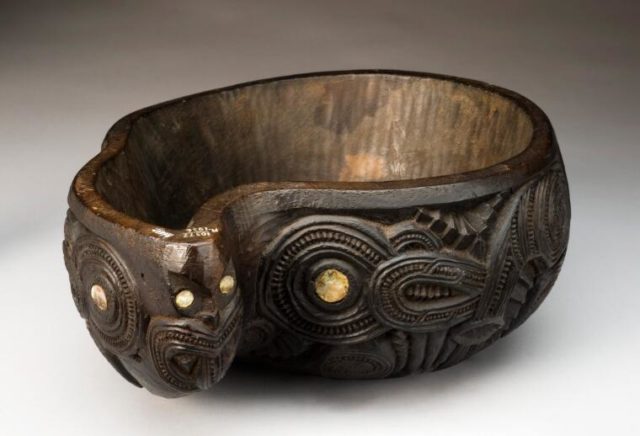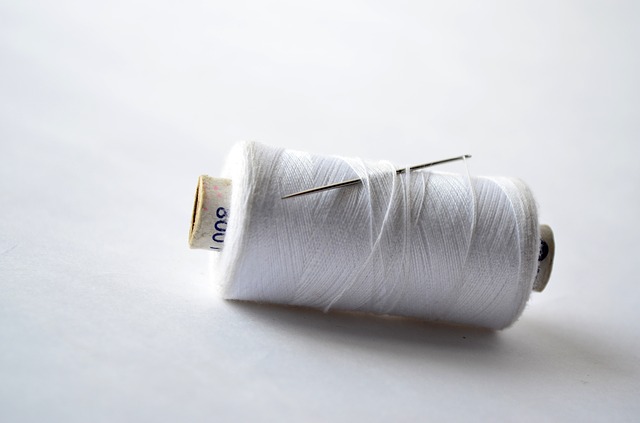Giving birth while contending with sciatica plus a sitting disability was, shall we say, an event. But delivering my baby was only act one. The denouement — the delivery of the placenta and subsequent medical decisions — would complete the drama.
After Birth
With my baby crying in the background, I exited the labor trance and my consciousness returned to the real world. I doubt anyone else in the room noticed the difference, since, if anything, I was even less alert and less responsive than I had been during labor.
I had no idea what was wrong with me. I only knew that I was so, so cold. Colder than I had ever been in my life. I was shaking so badly I couldn’t move. My teeth were chattering so fast that I couldn’t talk.
Later, I would read about postpartum chills, and realize my response was not uncommon. But at the time, I felt like something was very wrong indeed.
Someone stuck the baby in my face, but all I could see was a dark shock of hair. I couldn’t chatter out a proper response.
“She needs her glasses,” my husband Alex said, and I was pleased that he had read my mind. Although my baby was only a foot away, I couldn’t make out her features without my glasses.
Someone put my glasses on my face, but I was far less interested in the baby than I had assumed I would be. I couldn’t figure out why my body had turned to ice, or why I couldn’t control my limbs, which were both rigid and shaking at the same time.
I finally managed to say something like, “She’s cute!” so they would take the baby away again.
With great effort and more than a little assistance, I got into the bed. Jessica, my midwife, was down somewhere near my feet. She was saying something, maybe asking me to do something. But I couldn’t hear what she was saying over the sound of my chattering teeth.
“She needs a blanket,” Mom said, and I was grateful that she had somehow interpreted my non-response. Someone finally did get a blanket to throw over my top half, and while it seemed wholly insufficient, at least it was something.
I had yet to deliver the afterbirth, so Jessica started examining the umbilical cord. She began wiggling it, and I found the sensation strange, and more than a little unpleasant. I wanted to tell her to stop. I wanted to tell her I didn’t need her help. The instinctual program I was following told me I could deliver the placenta myself, if only I could stand up to do it.
It took a long time before I could say that I wanted to get out of bed, and even longer before I could actually do it. But once I made it onto my feet, I squatted down again, and after a couple of half-hearted pushes, I delivered the placenta.
Compared to my baby, who required an hour and a half of my best effort to get through my pelvis, the placenta seemed to slide out on its own. It made a wet plop as it hit the metal tray that had been placed there to catch it.
After a quick inspection, Jessica announced that the afterbirth was all in one piece, meaning no one had to go fishing around for any remnants in my uterus. My labor was over.

Image Credit: Roman terracotta votive offering in the shape of placenta. Science Museum, London.
Stitches
Next, Jessica wanted to conduct yet another vaginal exam.
I did not want another vaginal exam. I wanted to catch my breath. I wanted to get warm and feel safe. I wanted everyone to leave my vagina alone, until the rest of me was properly cared for. But, as I could still barely speak, my vote was easily vetoed.
Once again, Jessica inspected the mess between my legs, and made soothing sounds before she announced the results. “I do see some tearing,” she said. “First degree…maybe second degree.”
I knew from my reading that vaginal tears were common during childbirth. And, given the fiery explosion I felt when my baby made her debut, I wasn’t surprised.
“That’s okay, right?” I pushed the words through my chattering teeth. I remembered that there were four degrees of tears, and although I couldn’t remember the differences among them, I remembered thinking they didn’t look so bad below level three.
“It’s not the worst,” Jessica said, in a tone that implied that, while maybe a second-degree tear wasn’t that bad, it wasn’t that good either. “But I would still recommend stitches to make sure it heals properly. Actually, you may only need one stitch, but I’d have to check with the surgeon to be sure.”
Whatever mental gates had opened up enough to let me hear and understand Jessica now slammed shut. No, I thought. No no no no no no NO!
I had spent the last period of time – was it an hour, a day, a year? – being poked and prodded and interrogated by the hospital staff. In my trance-like state, I hadn’t been able to understand them most of the time, but I did know that I was doing the exhausting and important work of delivering a baby, and they were doing nothing to help, and much to interfere. I was ready to be done with the doctors and nurses. I was quite convinced that I was a better judge of what I needed than they were.
Alex, who had been minding the baby while I was incapacitated, recalls that at this point, I became deeply upset, but surprisingly articulate. He handed over the baby to the nurses, who wheeled her away to the nurses’ station in her little rolling bassinet. He was then free to devote his full attention to me.
I begged Jessica not to give me stitches. I begged her not to do another vaginal exam. I insisted that if I had to get stitches, I would not come back to a hospital again. Not ever. I do not remember saying these things. But I do remember meaning them.
I remember talking to someone in scrubs and a mask – was he the surgeon? the anesthesiologist? – about the stitches.
At some point after delivery, someone had added Dilaudid to my IV, so I was extra drowsy and loopy from the painkillers. I fought off the sleepy fog while the doctor did his best to explain the procedure and my pain relief options. I was concentrating so hard on pretending to be a competent, intelligent human being that I couldn’t process most of his answers.
The important points, as far as I could discern, were that the stitch had to be done within the next hour, and that I would have to do it with nothing stronger than Dilaudid in my system.
If I was going to have anyone poking between my legs with a needle and thread, I wanted to make sure I felt nothing. But proper anesthesia – the kind that deadened the nerves – was not an option, for reasons I couldn’t quite follow.
While this doctor didn’t put undue pressure on me, he was in favor of stitches. Without them, there was a chance that the tear wouldn’t heal properly, and I might end up with long-term pain.
The doctor left without any commitment from me, besides a promise to think it over. Jessica was outside somewhere, so the only medical people left in the room were two nurses, who I suddenly became aware of.
“Who are you?” I asked them, not very politely.
“I’m Lana,” said the first nurse.
“I’m Christine,” said the second nurse.
Or maybe they were Madeline and Ashley. Or Teresa and Sandy. Or Hannah and Savannah. I forgot their names as soon as they said them, and because of their masks, I couldn’t put a name with a face anyway.
“When did you get here?” I asked.
The first nurse shot me a quizzical glance, “We’ve been here the entire time,” she said.
“Oh. Hi.” I said. I realized that the first nurse was the person who kept adjusting my fetal monitor during labor. I hated that fetal monitor, and at the time, I hated her for touching me.
The nurse I had met during my hospital intake had left with the shift change. I had acquired these two nurses shortly after my labor began in earnest, but other than the first nurse’s hands, I hadn’t realized they were there.
I also learned, through Alex, and later Jessica, that there had been a team from NICU, and at least one medical resident in the room during my delivery. I hadn’t noticed their presence at the time, although my missing glasses may have been a factor.
“Can I ask what you’re worried about with the stitches?” said the first nurse, who was clearly the senior of the two. There was nothing but compassion in her question and on her face. Perhaps this was why I broke down when I answered, while I had retained a veneer of normalcy with the doctor.
“I just want everything to slow down, and for everyone to leave me alone!” I blubbered, trembling and half-crying. “I don’t know what just happened to me, and all these medical people keep talking at me, and asking me to do things, and telling me all this stuff, and I just want to breathe!”
Both nurses looked deeply pained on my behalf, and I realized that, under other circumstances, I would have admired their empathy. As it was, I was still pissed off by their unwanted interference in my labor.
“What can we do to help?” the first nurse asked.
“I don’t know, just…just leave me alone. I want to be alone for a few minutes. I need to breathe, and to think.”
They nodded, and headed out. “We’ll come back to check on you in a few minutes,” the first nurse said. “If you need us before then, just call,” she said, referring to the call button on my hospital bed.
Finally, it was just me, Alex, and Mom left in the room. I trembled, and blubbered, and talked things through, as he and Mom did their best to soothe me.
I didn’t know what to do. I knew that getting the stitches was the medically correct decision. But I also knew that I couldn’t stand to have one more medical thing done to me. Not then. I wished I had the option to wait a few days, or even a few hours, before making a choice. But I didn’t. I had minutes.
Finally, I reframed my choice: If I didn’t get the stitch, the worst-case scenario was that I would wind up with a poorly-healed vagina, long-term pain, and pelvic floor issues. If I got the stitch, I was unlikely to suffer these medical consequences, but I would be emotionally destroyed. Which worst-case scenario could I live with?
When Jessica came back, I informed her of my choice. “I don’t want stitches,” I said.
And although she looked surprised, and asked how I had come to my decision, she didn’t try to convince me to change my mind.
As it happened, the tear healed perfectly, and none of the worst-case scenarios came to pass. But even if they had, I wouldn’t second-guess my decision.
I learned from that incident that there’s a difference between making a medically sound decision, and being okay. In this case, I decided that regaining my bodily autonomy was more important than any physical wound.
Although the medical ordeal of labor was over, I now faced the not insignificant task of healing while learning to care for a newborn. But that’s a story for another time.

